Episodes
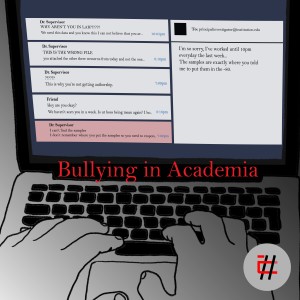
Wednesday Jun 30, 2021
Wednesday Jun 30, 2021
Have you ever felt demeaned, harassed, or humiliated at work? During their training, our future doctors and scientists may often encounter hostile work environments upheld by their supervisors. The academic culture emboldens the bullies and discourages students from speaking up when they experience harmful treatment. Why do bullies continue to thrive in academia, and how can the scientific community take action? In this episode, we discuss abusive supervision in academia with Dr. Sherry Moss, Professor of Organizational Studies at Wake Forest University, and Dr. Morteza Mahmoudi, Assistant Professor of Radiology and Precision Health Program at Michigan State University. We consult Dr. Bob Sutton, an organizational psychologist and author of “The No Asshole Rule,” and Dr. Steve Anderson, former Director of the Driskill Graduate Program at Northwestern University, to render a multi-layered perspective on the state of bullying in academia.
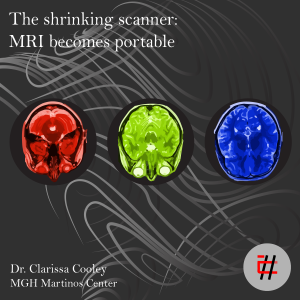
Wednesday Jun 09, 2021
Wednesday Jun 09, 2021
Magnetic Resonance Imaging (MRI) is considered one of the major innovations in the world of diagnostic radiology. By virtue of its flexible and noninvasive nature, MRI is one of the best tools we have to image the human body. However, conventional MRI scanners are gigantic machines that cost millions of dollars and weigh up to three tons - they are therefore limited in their distribution and point-of-care applicability. Wouldn’t it be amazing if we could shrink conventional MRI scanners into portable machines that could be plugged in almost everywhere and provide imaging diagnostics in situations where it would otherwise be impossible? Does this sound like science fiction to you? Listen to this episode to learn how Dr. Clarissa Cooley and her collaborators at the Martinos Center for Biomedical Imaging are working on transforming room-size scanners into TV-size machines that can be transported by cart.
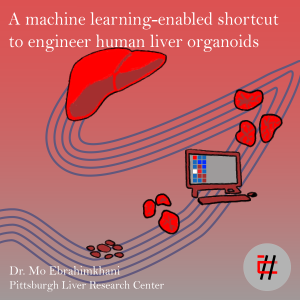
Wednesday May 19, 2021
Wednesday May 19, 2021
How wonderful would it be if you could deposit your skin cells at a medical facility and get an organ you need within weeks, ready to be transplanted? For decades, scientists have relentlessly worked to recapitulate functionally and physiologically relevant human organs in the lab. Some approaches rely on engineering an unfeasible number of genes in cells or on external cues like growth factors and mechanical signals. But these organs are far from overcoming the barriers of complexity, reproducibility, and time sensitivity, and are thus not ready to be applied in the real world. In today's episode, Dr. Mo Ebrahimkhani, a scientist at Pittsburgh Liver Research Center, discusses how his team used a machine-learning algorithm (called CellNet) to engineer genetic nodes in the stem cells, resulting in the generation of human liver organoids in less than three weeks. Importantly, these organoids were able to capture the complexity of a mature liver. Also learn here how the body map of organs can contribute to the rapid advancement of the field of regenerative medicine. Inspired by Kevin MacLeod is licensed under CC BY 4.0.
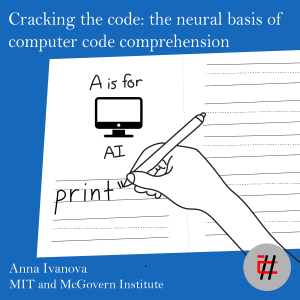
Wednesday Apr 28, 2021
Wednesday Apr 28, 2021
Have you ever wondered whether the brains of computer programmers are wired differently? Are there specific parts of the brain that are dedicated to computer coding? Scientists have outlined other networks in the brain, like those involved in language, but the neural basis of computer code comprehension has remained a mystery. We might call Python, Java, and C++ programming “languages,” but are they represented in the brain in the same way as natural languages? Anna Ivanova, a scientist at MIT’s Department of Brain and Cognitive Sciences, chats with us to uncover the answer. Her research uses functional MRI to find the areas in the brain most activated by reading computer code and whether they overlap with those activated by reading natural language. We also discuss the history of coding and the possibility that humans could evolve a brain network solely responsible for computer programming. Music by Kevin MacLeod licensed under CC BY 4.0
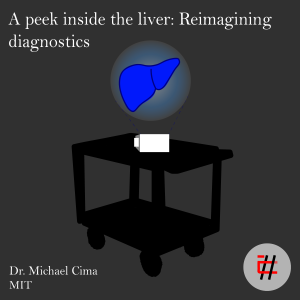
Wednesday Apr 07, 2021
Wednesday Apr 07, 2021
Every day devices like the thermometer and stethoscope have become mainstays of modern medicine, but recent advances have significantly improved the ways in which doctors can confidently make diagnoses. While some procedures can be complicated, invasive, and expensive, we are getting closer to overcoming these barriers with the use of technology. In this episode, we discuss the interface between engineering and medicine with Dr. Michael Cima, a leading expert in the field of materials science and engineering. He discusses the development of a medical device that can identify excess fat and scar tissue in the liver – and the best part is that it’s non-invasive and portable. The device will allow doctors to easily screen at-risk patients for liver damage, helping them make treatment decisions to prevent the progression of non-alcoholic fatty liver disease (NAFLD). Dr. Cima also tells us about the many hats he wears as an engineer, scientist, entrepreneur, and mentor. Music by Kevin MacLeod licensed under CC BY 4.0.
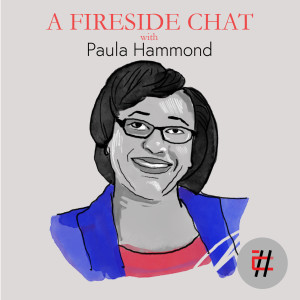
Wednesday Mar 17, 2021
Wednesday Mar 17, 2021
Professor Paula Hammond is a pioneer in chemical engineering, as well as the Department Head of Chemical Engineering at MIT and a faculty member at the Koch Institute for Integrative Cancer Research. Her interdisciplinary work focuses on nanoparticle technology with wide-ranging applications. Hammond’s work has and will greatly shape the future of drug delivery, with her nanoparticles able to target hard-to-treat cancers like ovarian cancer. Using her nanoparticle approach, she is currently developing a way to regenerate bone and treat osteoarthritis. She is proud of her visibility within her field, both as a testament to her passion to create new solutions to big problems and to show African Americans and women that their voices are both necessary and important in scientific research. Music by Kevin MacLeod licensed under CC BY 4.0.
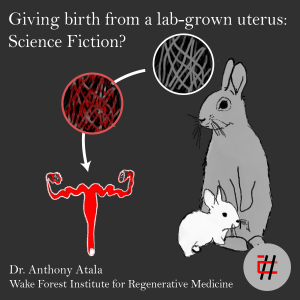
Tuesday Feb 23, 2021
Tuesday Feb 23, 2021
Keywords like "tissue-engineering", "bio-engineered organs", and "3D printing" were considered to be science fiction until only a decade ago. Today, creating living tissue that can repair or replace damaged organs is rapidly becoming reality. The field of regenerative medicine holds enormous potential in changing the way doctors treat many medical conditions. However, the road to advance lab-grown organs from the bench to the bedside is still a long one and requires scientific superheroes to overcome the challenges posed by the anatomical complexity of the human body. Whether this is your first time learning about regenerative medicine or you’re an expert, you won’t want to miss this episode. Dr. Anthony Atala, a world leader in the field of Regenerative Medicine, discusses his 18-year project of developing a lab-grown uterus that can support live birth in an animal model that may one day soon provide a significant treatment option for women with uterine factor infertility. "Half Mystery" by Kevin MacLeod is licensed under CC BY 4.0.
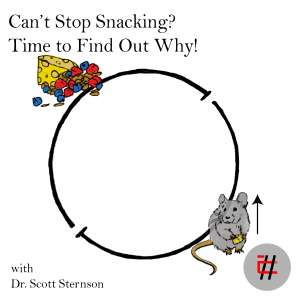
Saturday Feb 06, 2021
Saturday Feb 06, 2021
It’s 10 pm on a Friday night. You already had dinner, and you could swear your stomach couldn’t handle even another crumb of bread. All of a sudden, your friend offers you some chips, and you tentatively pick just one. Twenty minutes later, all the chips are GONE…! Wondered how that happened? You are not the only one! While the mechanisms by which the brain regulates and controls our appetite are still largely unknown, Dr. Scott Sternson and his team have developed cutting-edge tools for integrating molecular and systems neuroscience which hasadvanced our understanding of the neural circuits associated with thirst and hunger. Ready to listen? Well then, sit back, relax and… go grab your chips!
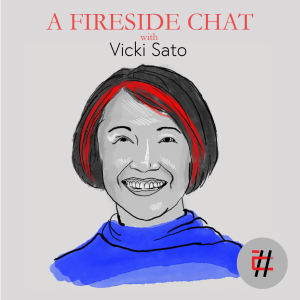
Wednesday Jan 20, 2021
Wednesday Jan 20, 2021
In the 1970s, most company advisory boards were male-dominated, and it was unconventional for an academic scientist to transition to industry. Yet, Dr. Vicki Sato, an accomplished academic scientist at Harvard University, quickly progressed through many executives and leadership positions at numerous companies, including Biogen Inc. and Vertex Pharmaceuticals, Inc. Today, she is a chairman of the board at Vir Biotechnology and Denali Therapeutics. As one of the early biopharma pioneers, Dr. Vicki Sato shares her eclectic career journey and some hard-earned lessons, as well as the changing face of the biotech industry and the current urgency of science-driven entrepreneurship. This episode will certainly inspire any aspiring scientist to reflect on their own career journey! This episode is sponsored by the Blavatnik Fellowship in Life Science Entrepreneurship at Harvard Business School. “Inspired” by Kevin MacLeod is licensed under CC BY 4.0
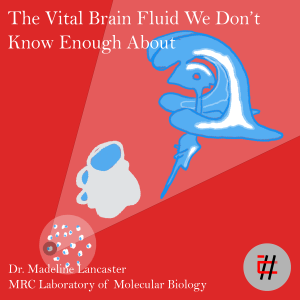
Tuesday Dec 22, 2020
Tuesday Dec 22, 2020
Have you ever wondered what happens in the brain during sleep? Or what regulates which substances can enter your brain and which can’t? When we think of the brain, we think of neurons. However, neurons can’t do all of this work by themselves! The cerebrospinal fluid (CSF) is a significant player in the brain and helps carry out vital functions, such as cleaning your brain during sleep! So why do we know so little about it? Learn more about the CSF and its fundamental roles in the brain with Dr. Madeline A. Lancaster, a Group Leader in the Cell Biology Division of the Medical Research Council (MRC) Laboratory of Molecular Biology in Cambridge, UK. She explains why we should pay more attention to the CSF and how, thanks to the recent in vitro models developed in her lab, we can now study this vital fluid like never before.


